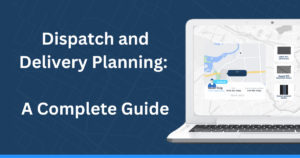Flexport seems to be on the winning path again after months of criticism for its layoffs, including the former CEO Dave Clark. After the long drawn-out leadership squabbles, CEO Ryan Petersen reveals behind the scenes how things are going after acquiring Convoy and the “embarrassment” of letting employees go.
Petersen recently spoke to Sarah Barnes-Humphrey on her podcast called Let’s Talk Supply Chain. Apart from sharing internal accomplishments, he predicts the Red Sea crisis will linger on for many years.
ALSO READ: The rise of Flexport and the fall of Convoy
Red Sea impact could ‘last for years’
The crisis in the Red Sea is here to stay, predicts Petersen. “I think it’s going to last for several years,” says the Flexport CEO. Without any “rapid solution” between Israel and Gaza, he sees nothing stopping the conflict that’s having a massive impact on the supply chain. “That’s the bad news. That’s why [operations] will run slower. It takes a few weeks longer to go around than to go through the Suez Canal.”
Conversely, he predicts it’s not all bad news for freight rates. “I don’t think it will have a lasting impact on pricing.” He says a lot of “excess capacity” is coming online, and the carriers know it. There is not an increase in demand. It’s unlike in the COVID times when demand was up 20%.”
What’s happening now is supply is reduced by the longer journey, but new ships have been ordered. “Carriers are reinvesting in their fleet. I don’t see it impacting the price,” says Petersen.
Why Flexport bought Convoy technology
“It’s the best technology. We bought it (Convoy technology) out of bankruptcy.” Although it was “kind of a no-brainer investment,” and it made sense for Flexport to buy it, it was not a perfect time for the company. But luckily, it was at a “reasonable price.”
“The timing wasn’t great for us because we were going through our transition. We were trying to cut costs, but we don’t live in a perfect world,” says Petersen.
“The technology is incredible. We’ve returned to many of the customers (and told them) we’re buying Convoy’s technology. We were having productive conversations with most of the customers,” says Petersen.
The new technology allows Flexport to “tap into this long scale of rental operators.”
Petersen says that Convoy’s technology allows them to have access to small owner-operators (about 400,000) and 65,000 carriers. “These are entrepreneurs who are dedicated and care a lot about their business. They are running a tight ship.”
Staff layoffs explained
In January this year, news broke that Flexport planned to layoff another 20% of its employees. This while it was still on the road to financial recovery.
Petersen explains that, like any other business, it’s part of the process. Regarding the bad publicity received for the third layoff in just a year, Petersen admits, “We deserve the criticism.”
“We hired too many people, and then we let people go, it’s embarrassing,” acknowledges Petersen. He says it is “bad for the company and culture,” but they try not to impact the customer despite it all.
Despite the ups and downs Flexport has experienced in the last few months, Petersen is optimistic despite the setbacks.
About the author
Mia is a multi-award-winning journalist. She has more than 14 years of experience in mainstream media. She's covered many historic moments that happened in Africa and internationally. She has a strong focus on human interest stories, to bring her readers and viewers closer to the topics at hand.












